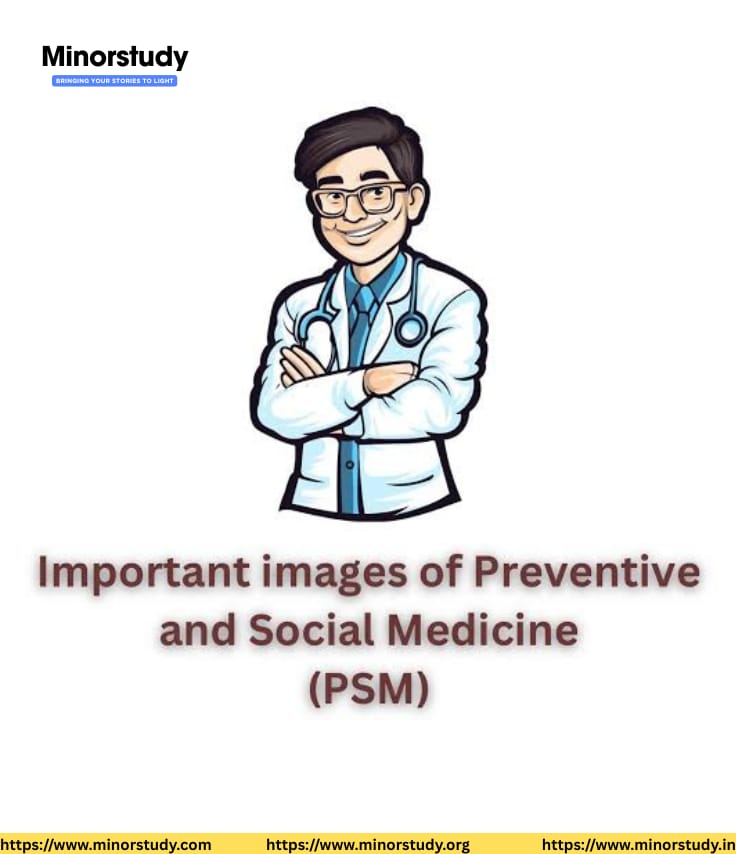👨⚕️ Introduction: What Is Preventive and Social Medicine (PSM)?
Preventive and Social Medicine (PSM), also known as Community Medicine, is the branch of medicine that focuses on the health of populations rather than just individuals. Its aim is to prevent diseases, promote health, and prolong life through organized efforts and informed choices.
- 👨⚕️ Introduction: What Is Preventive and Social Medicine (PSM)?
- 🕰️ History of Preventive and Social Medicine
- 📅 Timeline of PSM Milestones
- 📚 Interesting Facts About PSM
- ❓ FAQs About Preventive and Social Medicine
- 🎯 Significance of PSM in Life and Society
- 1. Disease Prevention
- 2. Promotion of Health Education
- 3. Epidemic Control
- 4. Reduces Healthcare Costs
- 5. Focus on Equity
- 6. Improves National Productivity
- 7. Builds Resilient Systems
- 🌍 Observances Related to Preventive and Social Medicine
- 💌 Wishing the Guardians of Public Health
- 📌 Key Takeaways and Important Points
- 🧬 Impact on Daily Life
- 🧠 Why Society Must Invest in PSM
- 🧭 Conclusion: PSM Is the Compass Guiding Public Health
Unlike clinical medicine, which treats individuals after illness has occurred, PSM emphasizes prevention, education, sanitation, vaccination, epidemiology, and health policies. It is the backbone of national and global health programs, and a silent savior behind every public health success story.
🕰️ History of Preventive and Social Medicine
The roots of preventive medicine go back to ancient civilizations, long before modern medicine emerged.
2600 BCE – Ancient Egypt: Physicians advised regular cleansing, dietary rules, and sanitation practices.
460–370 BCE – Hippocrates introduced the concept of health being affected by environment, food, and lifestyle.
14th Century – Black Death: Highlighted the need for quarantine and public health laws.
19th Century – John Snow used epidemiological methods to trace a cholera outbreak to a water pump in London.
20th Century – Germ theory and vaccines transformed public health.
Post-Independence India: Institutes like AIIMS and PHC (Primary Health Centres) focused on rural health and community care.
📅 Timeline of PSM Milestones
| Year | Event |
|---|---|
| 1854 | Dr. John Snow halts cholera in London—birth of epidemiology |
| 1906 | Establishment of School of Public Health in USA |
| 1946 | WHO formed to promote global health |
| 1950s | India’s National Malaria Eradication Programme |
| 1978 | Alma Ata Declaration: Health for All |
| 2005 | Launch of National Rural Health Mission (NRHM) in India |
| 2020 | PSM became frontline during COVID-19 pandemic |
📚 Interesting Facts About PSM
PSM saves more lives through vaccination and clean water than surgery or medicine combined.
Every 1 rupee spent on prevention saves 10 rupees in future treatment.
The average lifespan increased by 30+ years in the 20th century, largely due to public health advances.
Epidemiology, a key branch of PSM, helps detect and stop disease outbreaks.
PSM professionals work not just in hospitals, but in rural areas, NGOs, disaster zones, and policymaking.
❓ FAQs About Preventive and Social Medicine
Q1: What is the difference between Preventive and Clinical Medicine?
A: Clinical medicine treats individual patients after illness. PSM works to prevent diseases and promote health for the entire population.
Q2: Who are the professionals in this field?
A: Doctors specialized in community medicine, epidemiologists, public health experts, and health educators.
Q3: Is PSM relevant only in poor or developing countries?
A: Not at all. Even in developed nations, vaccination, screening, health education, and policy planning are critical.
Q4: What are some tools used in PSM?
A: Immunization, health surveys, epidemiological studies, health education, sanitation drives, and nutritional programs.
Q5: What role did PSM play during COVID-19?
A: PSM professionals were the backbone of testing, tracing, surveillance, awareness, and vaccination drives.
🎯 Significance of PSM in Life and Society
1. Disease Prevention
The biggest role of PSM is preventing illness. Whether it’s vaccines, hygiene, vector control, or screening programs, preventive steps save millions of lives annually.
2. Promotion of Health Education
Health isn’t just about medicine. It’s about choices—what we eat, how we exercise, and how we live. PSM educates communities on all aspects of healthy living.
3. Epidemic Control
From cholera to COVID-19, PSM uses epidemiological tools to track, control, and prevent the spread of diseases.
4. Reduces Healthcare Costs
Preventing disease is far cheaper than treating it. By reducing the burden on hospitals, PSM saves national resources.
5. Focus on Equity
PSM ensures accessible healthcare for all, especially the poor, marginalized, and rural populations. It’s a tool of social justice in health.
6. Improves National Productivity
Healthy citizens = Productive citizens. PSM indirectly boosts economic development by improving population well-being.
7. Builds Resilient Systems
Preparedness is key. PSM strengthens public health systems to face future pandemics, disasters, or bioterrorism.
🌍 Observances Related to Preventive and Social Medicine
World Health Day – April 7
World Immunization Week – Last week of April
World AIDS Day – December 1
National Nutrition Week (India) – September 1-7
World No Tobacco Day – May 31
These observances aim to raise awareness, promote community involvement, and recognize the importance of preventive efforts worldwide.
💌 Wishing the Guardians of Public Health
🏥 “To the heroes who work silently behind the scenes—Happy Preventive and Social Medicine Day! Your work shapes a healthier tomorrow.”
🌱 “Wishing strength to every public health worker striving to make every village, city, and nation disease-free.”
📌 Key Takeaways and Important Points
🛡️ PSM prevents disease and promotes health at the community level.
🧪 Uses tools like epidemiology, health education, immunization, and sanitation.
💰 Saves healthcare costs by preventing rather than treating.
👥 Brings equity to healthcare systems.
⚖️ Plays a role in policymaking and disaster preparedness.
📈 Essential for the sustainable development goals (SDGs) of the United Nations.
🧬 Impact on Daily Life
You may not realize it, but PSM affects your life every single day:
The safe drinking water in your tap is a product of public health.
That vaccination camp in your village or school? Organized by PSM.
The warning about dengue outbreaks? That’s community surveillance.
Your knowledge about nutrition, hygiene, or smoking risks? That’s health education—core to PSM.
Whether you’re in a city or a remote village, Preventive and Social Medicine touches your life quietly but profoundly.
🧠 Why Society Must Invest in PSM
In a world facing climate change, emerging diseases, antibiotic resistance, and health inequities, PSM is not optional—it’s essential.
Governments, NGOs, private hospitals, and communities must invest more in PSM infrastructure, awareness campaigns, research, and training.
🧭 Conclusion: PSM Is the Compass Guiding Public Health
Preventive and Social Medicine is not just about preventing illness—it’s about creating a future where health is a right, not a privilege.
It represents the ethical, social, and scientific backbone of modern healthcare systems. While clinical medicine saves lives one at a time, PSM saves millions at once.
The next time you attend a health camp, drink clean water, or get vaccinated, remember: there’s an entire army of PSM professionals behind that moment, working tirelessly for a healthier world.








